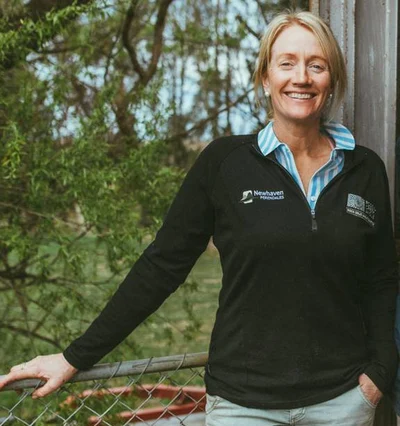Methane Science Accord pushing for scientific approach

The current proposed ruminant methane tax could see around 20 per cent of sheep and beef farms go out of business, says Otago farmer, environmentalist and co-chairperson of the newly founded Methane Science Accord, Jane Smith.
“It’s generic, overbearing and economically quite treacherous, particularly to farming operations that are flourishing to a lesser degree economically.”
The Methane Science Accord, founded by a group of like-minded farmers and industry stakeholders, aims to lobby the incoming Government for a methane tax policy based on current, unrefuted science.
The group says that methane science is evolving, and policy needs to take that into account.
The Global Warming Potential (GWP100) stated that methane was a strong absorber of heat, making farmers ruminants responsible for nearly half of New Zealand’s emissions.
However, research findings from Oxford University found that the GWP100 overstated methane’s ruminant warming ability by 300-400 per cent.
The group is questioning why the new findings into methane are being ignored and that farmers have been left feeling “angry and bewildered.”
Smith said the Methane Science Accord is science-focused and that the sector and Government need to address ‘why’ when looking at methane policy rather than the “how, what, when and who.”
“We want to help politicians, urban people and our own sector understand the science, and try and educate the wider public and keep politicians on track.”
The group said that the proposed methane tax policy could see one in five farmers gone, which it describes as “economic suicide for provincial New Zealand”, and with New Zealand’s trading partners not adopting a similar policy, we will become uncompetitive.
Smith said that New Zealand farmers are some of the most efficient in the world because the sector has chased efficiency, not targets.
“Let’s carry on down the track of efficiency; let’s get the carbon down even further, but let’s do it on exactly the same trajectory we have been using, which is breeding more efficient stock.”
Smith said that the rest of the world is envious of New Zealand’s position, and to make a difference in climate change globally, we need to share our knowledge.
“If we want to do something really heroic, why don’t we help the rest of the world become as efficient in a pasture-raised system as we are?”
So far, support for the Methane Science Accord has come not just from the agriculture sector but also from the urban dwellers and business people, Smith said.
“They know that this will affect them, and it’s been really heartening to see they understand the consequences as well.”
Feedback from levy groups shows they are pleased the Methane Science Accord is sticking to the science and staying out of politics.
“We are not getting involved in politics; we are very clear on that.
“Politics is what got us into this mess in the first place.”
The Methane Science Accord is independent of but fully supported by Groundswell N.Z., 50 Shades of Green, Facts About Ruminant Methane (F.A.R.M.), Rural Advocacy Network and over 100 farming leaders.
People are encouraged to get behind the campaign even if they support other lobby groups.
Those wishing to support the campaign or learn more can go to www.methane-accord.co.nz.
by Claire Inkson

